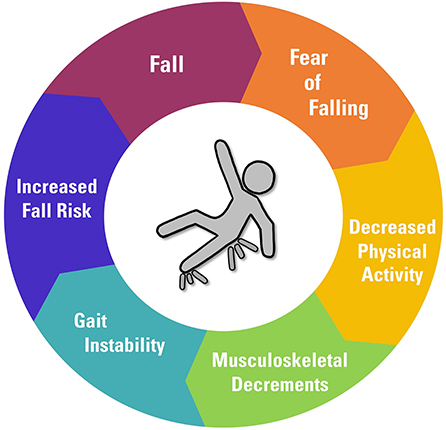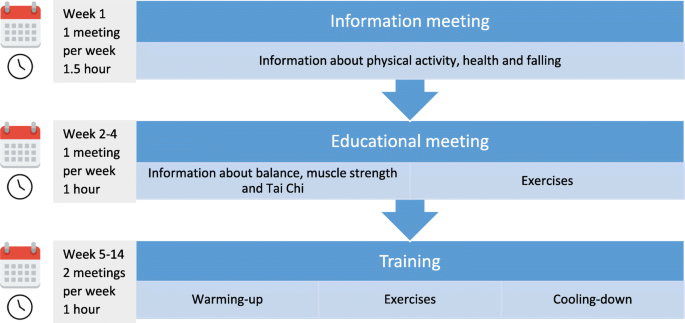The Main Principles Of Dementia Fall Risk
The Main Principles Of Dementia Fall Risk
Blog Article
Dementia Fall Risk Fundamentals Explained
Table of ContentsHow Dementia Fall Risk can Save You Time, Stress, and Money.How Dementia Fall Risk can Save You Time, Stress, and Money.The smart Trick of Dementia Fall Risk That Nobody is Talking AboutThe Main Principles Of Dementia Fall Risk Dementia Fall Risk for Dummies
Make sure that there is an assigned area in your clinical charting system where staff can document/reference scores and record appropriate notes associated to drop prevention. The Johns Hopkins Autumn Risk Evaluation Tool is one of many tools your team can make use of to aid avoid damaging medical events.Person falls in healthcare facilities are common and devastating negative events that linger in spite of decades of effort to reduce them. Improving interaction across the evaluating nurse, care group, individual, and person's most involved family and friends may strengthen autumn avoidance efforts. A group at Brigham and Female's Health center in Boston, Massachusetts, sought to establish a standard fall prevention program that centered around boosted interaction and client and household interaction.

The technology group highlighted that successful execution depends upon person and personnel buy-in, combination of the program right into existing operations, and fidelity to program processes. The team noted that they are facing exactly how to make certain connection in program implementation throughout periods of situation. During the COVID-19 pandemic, as an example, an increase in inpatient falls was linked with limitations in client engagement in addition to restrictions on visitation.
Little Known Questions About Dementia Fall Risk.
These cases are generally considered avoidable. To execute the intervention, companies need the following: Access to Loss pointers sources Loss TIPS training and re-training for nursing and non-nursing team, including new nurses Nursing operations that allow for person and household interaction to conduct the drops assessment, guarantee usage of the prevention strategy, and carry out patient-level audits.
The outcomes can be extremely damaging, frequently accelerating patient decrease and causing longer health center remains. One study approximated stays increased an additional 12 in-patient days after a person loss. The Autumn TIPS Program is based upon engaging patients and their family/loved ones throughout 3 primary processes: evaluation, customized preventative interventions, and auditing to make sure that people are participated in the three-step autumn prevention process.
The patient analysis is based upon the Morse Fall Scale, which is a verified loss danger assessment device for in-patient healthcare facility setups. The scale includes the six most usual factors people in health centers fall: the person autumn background, risky problems (consisting of polypharmacy), usage of IVs and other outside devices, psychological standing, stride, and mobility.
Each danger factor links with one or even more workable evidence-based treatments. The registered nurse develops a plan that incorporates the treatments and is visible to the care team, person, and household on a laminated poster or published aesthetic help. Nurses create the strategy while consulting with the patient these details and the client's household.
Our Dementia Fall Risk Diaries
The poster offers as a communication tool with various other members of the individual's treatment team. Dementia Fall Risk. The audit component of the program consists of evaluating the client's expertise of their threat aspects and avoidance strategy at the unit and health center levels. Nurse champions carry out at the very least 5 specific meetings a month with people and their families to inspect for understanding of the autumn avoidance strategy

An approximated 30% of these falls result in injuries, which can vary in extent. Unlike other negative occasions that require a standard medical action, loss avoidance depends highly on the needs of the patient.
The Single Strategy To Use For Dementia Fall Risk

Based upon auditing outcomes, one site had 86% compliance and 2 sites had over 95% conformity. A cost-benefit evaluation of the Fall TIPS program in eight medical facilities approximated that the program cost $0.88 per patient to implement and led to savings of $8,500 per 1000 patient-days in straight prices associated with the prevention page of 567 falls over 3 years and eight months.
According to the advancement group, organizations interested in carrying out the program ought to carry out a readiness evaluation and falls avoidance gaps analysis. 8 Furthermore, companies need to guarantee the necessary framework and process for implementation and develop an implementation strategy. If one exists, the company's Loss Prevention Task Pressure should be included in preparation.
Some Of Dementia Fall Risk
To start, companies must ensure conclusion of training components by nurses and nursing assistants - Dementia Fall Risk. Health center staff need to assess, based upon the demands of a hospital, whether to use a digital health and wellness document printout or paper version of the autumn prevention strategy. Executing teams ought to hire and train registered nurse champions and establish processes for bookkeeping and reporting on autumn data
Team need to be entailed in the process of revamping the operations to engage clients and household in the analysis and prevention strategy procedure. Equipment ought to be in location to ensure that devices can comprehend why a loss occurred and remediate the reason. Extra specifically, nurses need to have networks to supply recurring comments to both personnel and unit leadership so they can adjust and enhance loss prevention operations and connect systemic problems.
Report this page